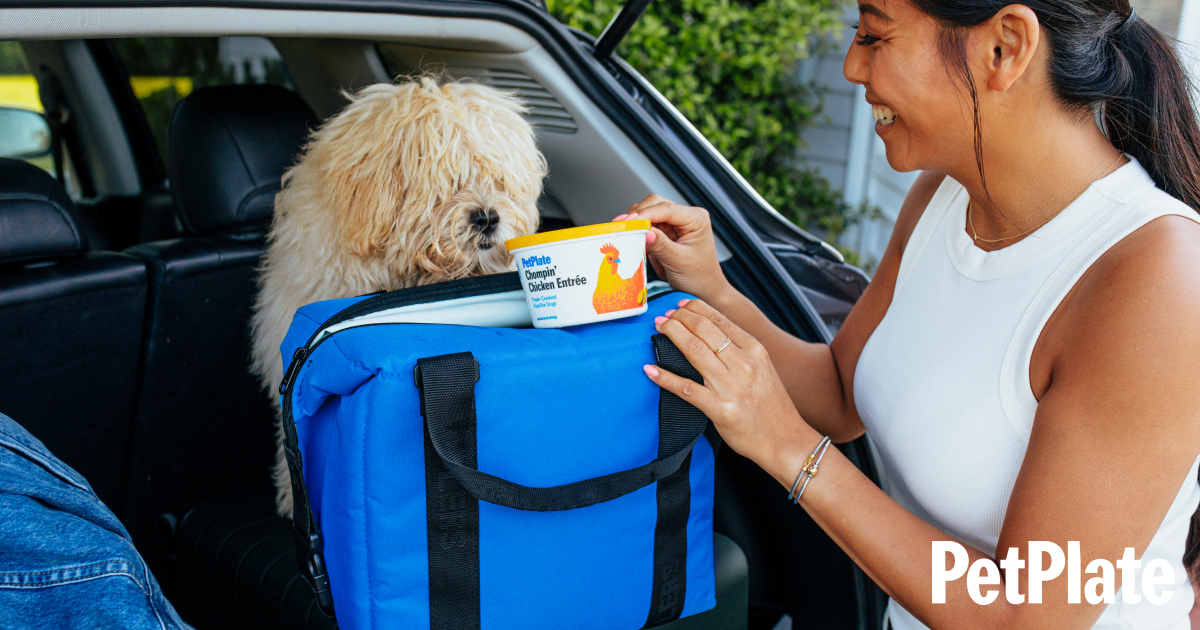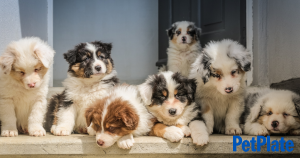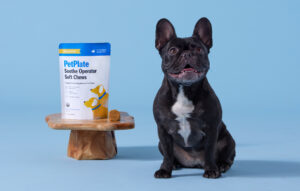Stress-Free Holiday Travel with Pets: How to Travel Safely With Your Dog
Will your dog travel with you when you visit your relatives this holiday season? Or are you planning to take them along on your holiday vacation, meaning they’ll be with you in your hotel, at the Airbnb, or in your tent or camper?
Regardless of travel specifics, you (and your dog) deserve a stress-free holiday season. Taking your dog on a Christmas or New Year’s trip doesn’t have to be an emotionally exhausting or nerve-wracking experience. And it definitely won’t be if you follow our guide to safe pet travel.
Visiting Family

Family environments can challenging if your dog has never stayed at a parent, sibling, cousin, or partner’s home before.
It will undoubtedly be filled with unfamiliar sights, sounds and smells, and possibly involve other pets or rambunctious children that your dog won’t know and may not trust. Your previously secure dog may suddenly want to be around you all the time. They may become anxious and distressed if you put their bed or crate downstairs while you’re up in the guest room. If they whine or bark all night, you may bear the wrath of your sleep-deprived loved ones in the morning.
Tips to Keep Your Dog Safe While Visiting Family
Bringing your dog along on a holiday visit is a challenge for your dog. But with your assistance, it’s a challenge they can overcome.
Here’s what you can do to ensure your dog’s comfort and happiness while in your family member’s home:
- Clear it with the homeowner first and with other family members who will be there. If the homeowner has any objections to you bringing your dog, that could be a dealbreaker. But you should also reconsider if you find out someone in your family has a dog allergy, a small child frightened of dogs or a pet that doesn’t get along with other animals. No matter what, you shouldn’t court trouble by bringing your dog along. That could create stress that your dog will sense.
- Bring all the necessary supplies. Don’t assume that you’ll be able to get your dog’s favorite foods where you’ll be visiting. The same goes for any medications or supplements your dog has been taking. You should also bring your dog’s food and water dishes and their bed or sleeping crate to make the new environment seem like their “home away from home.”
- Don’t expect your dog to sleep far away from you. Your dog will likely feel vulnerable if they can’t see or be close to you at night. Consequently, the sleeping arrangements should ideally put you where your dog’s bed or crate can be close by.
- Work out the logistics with other pet parents who will be at the family event. If multiple pets are at family gatherings, you should discuss how to handle that situation with the other pet parents. Some pets—possibly including your dog—may need to be segregated from others if previous behavioral patterns suggest there could be conflicts.
- Maintain your everyday routines. Your dog’s walking and feeding schedules should match your home routines. This will help them feel more secure and at ease. Consider adding an extra walk or two each day to your schedule, since dogs enjoy time spent outdoors with their favorite humans.
- Don’t let them eat or drink from other pet dishes. If they eat or drink from the same bowls as other pets, they could be vulnerable to parasites or bacteria left by the other animals. Likewise, your dog could pass pathogens on to other pets.
- Set firm boundaries. Everyone should know when and how to approach your dog, including adults and children. Your dog may not enjoy too much petting or attention or be timid around children or be prone to nipping or growling if people get too close.
- Make sure your dog has a quiet and safe retreat space. Holiday celebrations can get raucous, loud and chaotic. While events are ongoing, your dog should have a quiet place to retreat to, where they can be protected from too much noise, movement and general overstimulation. You should visit them periodically, so they know you haven’t forgotten them.
Going Camping

Most dogs love being outdoors and in nature. This makes dogs natural campers, and if you go on a camping trip this holiday season, it could be one of the best gifts your canine companion has ever gotten.
But you have to be extremely cautious when taking dogs on camping trips. They can quickly get into trouble—or even get you into trouble—if you don’t keep a close watch on them at all times.
Tips to Keep Your Dog Safe While Camping
To make sure your dog stays safe and healthy on your holiday camping vacation, you should:
- Keep them inside or on a leash. Dogs get excited by nature’s sights, sounds and odors; even if well-trained, they may want to go exploring. Dogs who wander off the campsite can get in all kinds of trouble (they could run into a skunk, get hit by a car, eat or drink something foul, get lost in the thickets, etc.). You can’t afford to take any chances, so they should always be on a leash when they’re outside.
- Check them for ticks twice daily (if you’re camping in a warmer region). Ticks love dogs, but dogs certainly don’t reciprocate those feelings. If you check your dog thoroughly for ticks at midday and again each night, you should be able to remove them before they do any damage.
- Protect your dog from extreme temperatures. Winter camping trips in colder climates may be stimulating for you, but they can be extraordinarily uncomfortable for your dog. If your dog is with you while camping in the winter, you should have a heated space available where they can remain safe and comfortable.
- Don’t wear them out on long hikes. The risk here depends on the dog’s size, age, overall health and fitness. Puppies and young dogs, older dogs and overweight dogs should not be expected to keep up with human companions on multiple-mile, multiple-hour hikes. Even on shorter sojourns, you should take plenty of rest breaks and frequently offer them food and water.
- Never let your dog eat anything or drink water you haven’t provided. Your dog will eat just about anything organic, and they may want to drink water wherever they find it. This is dangerous behavior when you’re out in the woods because they can easily consume food or water contaminated with parasites, bacteria, or other harmful lifeforms like toxic blue-green algae.
- Put your name and contact information on their collar. Dogs can wander away and get lost very suddenly in unfamiliar outdoor environments. That’s why you should add your contact information to their identification tag and keep their collar and tags on them throughout your camping vacation.
- Have your dog up to date on their vaccinations. Dogs spending time in nature can face various health risks, even when you monitor them closely. Before you take your dog camping, you should check to see that they’ve had all the necessary vaccinations, including those for rabies, canine hepatitis, canine parvovirus and distemper.
Staying at a Hotel or Airbnb
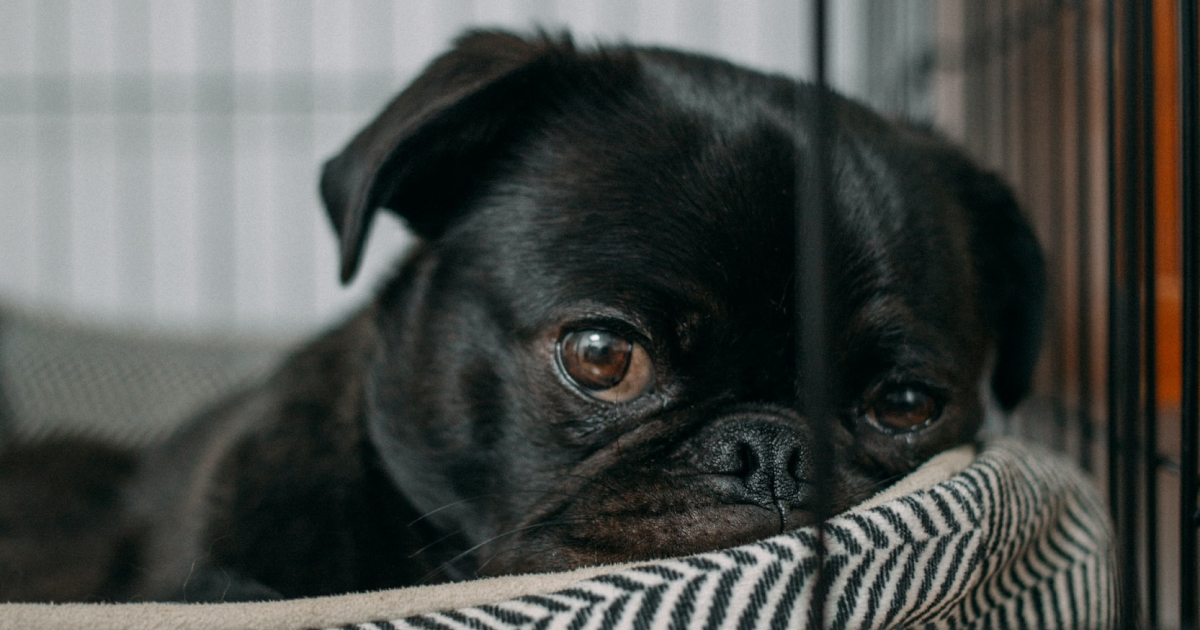
Fortunately, an increasing number of hotels and many Airbnb hosts are pet-friendly. This makes it easier to take your dog along on your holiday vacation, eliminating the need to find someone to take care of them while you’re away.
But if they go with you, you’ll need to take responsibility for their happiness and comfort while ensuring they don’t damage the property you’re visiting. Your dog may struggle to cope with their nervousness when they’re exposed to running and laughing children, the barking or growling dogs of other guests, constant traffic out on the street or in and out of the hotel parking lot, or the various odd noises and odors that one encounters in the normal hotel environment.
Tips to Keep Your Dog Safe While at a Hotel or Airbnb
When you’re staying at a hotel or rented apartment while on vacation, you may enjoy the experience of getting away from your regular home routine. But you should remember that dogs are not people and prefer a steady and predictable environment over novelty or breaks from routine.
Here’s how you can help them adjust to staying in a hotel or Airbnb:
- Make sure you know what you’re getting into. Before booking a reservation anywhere, you should read as many customer reviews as possible, specifically searching for comments from other pet parents who brought their dogs to that hospitality site. You may learn a thing or two that will let you know if bringing your dog there is a good idea.
- Bring along their bed or sleeping crate. Your hotel or Airbnb will have plenty of cozy and comfortable places where your dog can sleep, which your canine friend may decide to test out. Nevertheless, you should still take their regular sleeping bed or crate along, so they can retreat to a secure and familiar place that reminds them of home when they become anxious.
- Inspect and clean out the room before letting your dog inside. You shouldn’t just assume the facility’s cleaning service will be first-rate. Previous guests might have left behind spoiled or rotting food or food that isn’t appropriate for dogs under the beds or in the garbage cans. If your dog smells it, they could gobble it up before you can react.
- Stick to your normal dog walking and feeding routines. It can’t be emphasized enough how helpful it can be to observe your regular routines when you take your dog to a new place. It will reduce their tension and give them the sense of normalcy that companion animals crave.
- Make sure they get plenty of exercise. You may spend a lot of time in your room and your car during your holiday vacation. This can be pretty boring and even stress-inducing for dogs, so you should make a special effort to walk, run or play with them outside daily.
- Don’t leave them alone if you can possibly help it. Dogs left alone in hotel rooms, or rented apartments may experience intense nervousness and separation anxiety. You should try to take them with you wherever you go, but if this isn’t possible, you should have a designated dog sitter who will stay with your dog while the others in your party are out.
Frequently Asked Questions

These are some common queries from folks who would like to travel with their dogs over the holidays and want to do it right:
What can you give a dog to reduce travel anxiety?
There is a scent-producing product called Adaptil (ask your vet about it) that releases a synthetic version of the pheromone emitted by mother dogs to calm their puppies (it works on dogs of all ages). Adaptil can be sprayed on bedding or into the air or released into the air by a diffuser. The smell of lavender can also help dogs relax. You can freshen the air inside your car by soaking cotton balls in lavender and then putting them inside an open plastic bag in the back window.
What do I need to travel with my dog?
When you’re away from home, your dog should wear a collar with ID tags that list the dog’s name, your name, your cell number and the address of the place you’ll be staying while on your trip. If you are traveling by plane, you’ll need to provide the airline with certified vaccination records and a certification from your veterinarian confirming their overall health and ability to travel safely. These records should be sent to the airlines a few days before you plan to travel.
How do you travel with pets during the holidays?
You should try to create a tranquil and peaceful atmosphere whenever you travel with a dog. While in the car, you can play relaxing music, let them rest on their normal bedding on the seat or in their travel carrier, and give them toys they can chew on or snuggle up with. You should pet them a lot while offering soothing words of reassurance, and a steady supply of scrumptious PetPlate organic treats can also help keep them calm and content. If you’re flying to your destination, it is undoubtedly preferable that your dog is with you in the cabin, where you’ll be able to follow at least some of these recommendations.
Safe and Happy Holiday Travel for Everyone
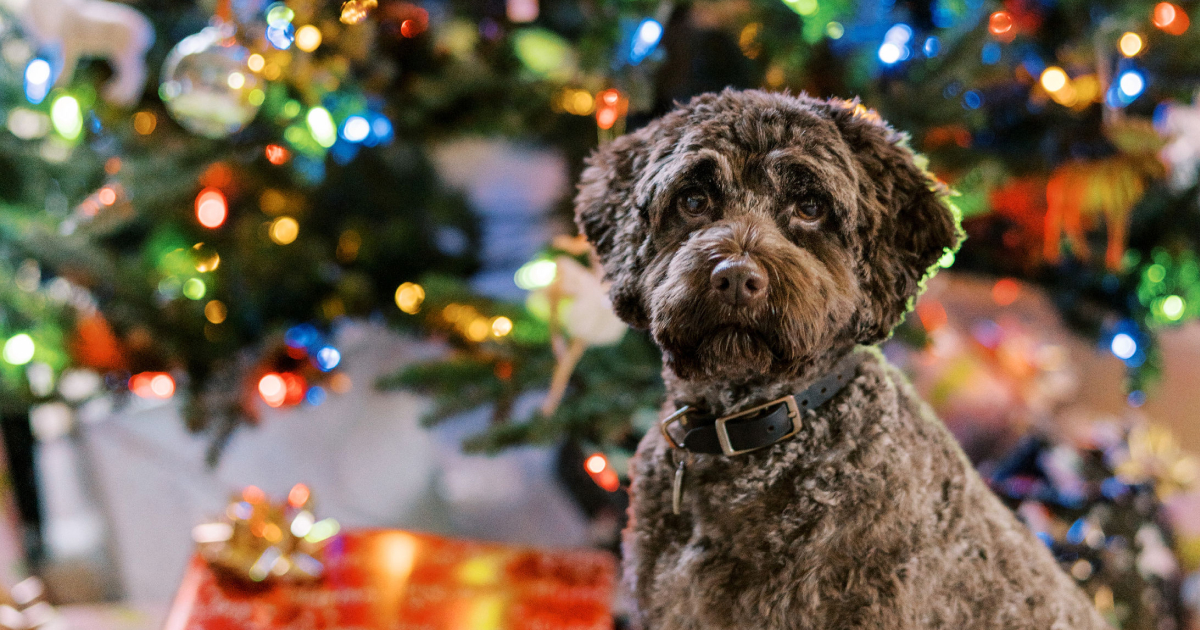
Traveling with your dog may fill you with a sense of trepidation, but it shouldn’t. As long as you follow the tips offered here, all of which are based on the experiences of other pet parents who’ve traveled successfully with their dogs, you’ll be able to enjoy a safe, happy and stress-free trip with your beloved canine companion at your side. Despite the challenges and inconveniences involved in traveling with a pet, your dog will be delighted to be with you, and their pleasure and excitement will make the trip far more rewarding for you and your family!
